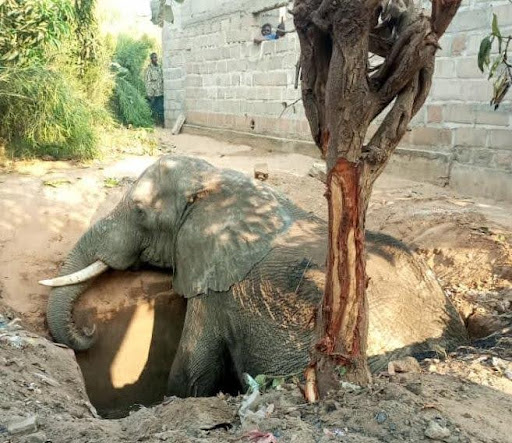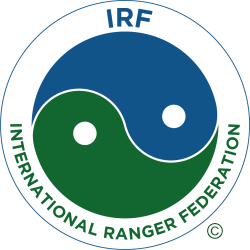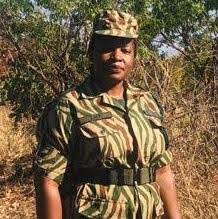and Human-Wildlife Conflict
Credit: Game Rangers Association of Africa and Anety Milimo
Anety Milimo is a mother of four daughters. Two are her biological daughters and the other two she took into her care when her sister passed away in 2008. Anety is also an experienced ranger and research technician in Mosi oa Tunya National Park, Livingstone, Zambia. She has over 19 years’ experience working in conservation management, sustainable community and livelihood improvement, conservation of forest ecosystems. She is also a well-seasoned researcher.
Perhaps it is Anety’s nurturing mothering way that makes her so effective working with communities to mitigate human wildlife conflict and reduce harm to both animals and people. “Working with communities is key when trying to sensitize them to animal behaviour and getting them to co-exist with wildlife,” Anety explains. But continued destruction of elephant habitat and their corridors is becoming an increasing problem in the Kavango-Zambezi trans frontier conservation area, with elephants, hippos, crocodiles and other wildlife having nowhere to go. The increase in the development of hotels and lodges is putting severe pressure on wildlife.
Anety explains the efforts it takes to change people’s response to wildlife. Throwing stones, screaming and chasing elephants only agitates them more which inevitably results in devastating injury or even death of a person. When this happens, wildlife is also killed.

© Anety Milimo
Reducing HWC should be a more of a government priority. “If left unchecked, conservation efforts will be futile because animals are being killed in the name of control to please people.” Anety has witnessed terrible instances of severely injured animals like elephants falling into septic tanks holes around people’s homes after being chased.
The rangers in Mosi oa Tunya National Park work against all odds. A lack of vehicles means their reaction to HWC is delayed. A lack of basic resources also makes their work more challenging. But rangers are innovative and rise above the odds. “We plan to air important information on local TV and radio stations and also print brochures and posters so that where we can’t physically reach people, we can still share valuable information of what to do and how to reduce harm.”
Anety notes the positive strides that are being made in some communities, co-existing with wildlife. Instead of reacting violently towards the animal, communities will go indoors, allowing the animals to pass through.
When Anety is asked what she thinks should be done to reduce HWC and deaths of people and wildlife, she says protected areas need to be safeguarded. “Conserve the remaining few natural places and stop the unsustainable development of more hotels along the Zambezi River.” We know that for this to be achieved, well-equipped and well-trained rangers are needed!

